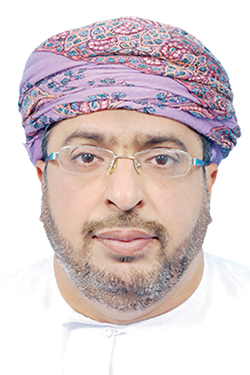

The Royal Decree No 23/2019 issued recently regarding the Selective Tax Law after it was discussed and approved by the State Council and Majlis Ash’shura, will impose tax on some items for the benefit of the society.
The selective tax includes all types of tobacco, derivatives, soft drinks and energy drinks, targeting to reduce the consumption of some harmful goods by imposing tax up to 100 per cent.
The Supreme Council of the Gulf Cooperation Council (GCC) decided at its 36th meeting in Riyadh in 2015 to impose selective tax on goods that are supposed to be harmful to health and/or to the environment, in addition to luxury goods. Also, there is a great potential to impose value added tax (VAT) on goods and services during the coming period. Such tax has already been imposed in some of the GCC countries.
Tax receipts are provided to support spending on social and economic sectors, and to enable low-income groups to lead a decent life by helping them financially and morally. In spite of the advantages of taxes, sometimes these work against domestic and foreign investments, as enterprises and companies move abroad because of high cost of services, which leads to job losses and investments in the country. Also, national companies and institutions sometimes retain their profits abroad for this reason.
The Selective Tax Law was expected to be imposed from June 2018, but it was postponed till the beginning of this year to include tax on alcohol and pork, as well as soft drinks and tobacco products. Over the time, it is expected that this tax will include some types of other luxury goods such as automobiles, electrical and electronic materials and others.
The Ministry of Finance held awareness seminars on VAT and selective taxes law some time ago to ensure a smooth transition. There is no doubt that this type of tax has an immediate and direct impact on the behaviour of the consumer and work to protect people and maintain
their health.
This law has positive effects and leads to raising the general health of the Omani society, which is the most important factor. This will rationalise consumption patterns which are harmful and raise the level of savings among individuals, in addition to reducing the annual medical treatment bills for those who are affected as a result of the use of such harmful goods and products, along with raising the level of public health among the population. Some members of the Majlis Ash’shura consider that the application of this law will reduce the consumption of these goods and products between 15-20 per cent during the first year, and the percentage may increase later. It is expected that this tax could add RO 100 million annually to the revenue, which may lead to the improvement of the trade balance and pushing others towards savings, as well as in decline in consumption of these goods, which means the successful realisation
of the law.
The imposition of selective taxation on these commodities seeks to achieve a number of objectives, including the promotion of healthy lifestyles, addressing negative phenomena and practices in the society by modifying the consumption pattern of individuals and directing financial revenues
to provide more social services, healthcare and others.
Oman Observer is now on the WhatsApp channel. Click here



